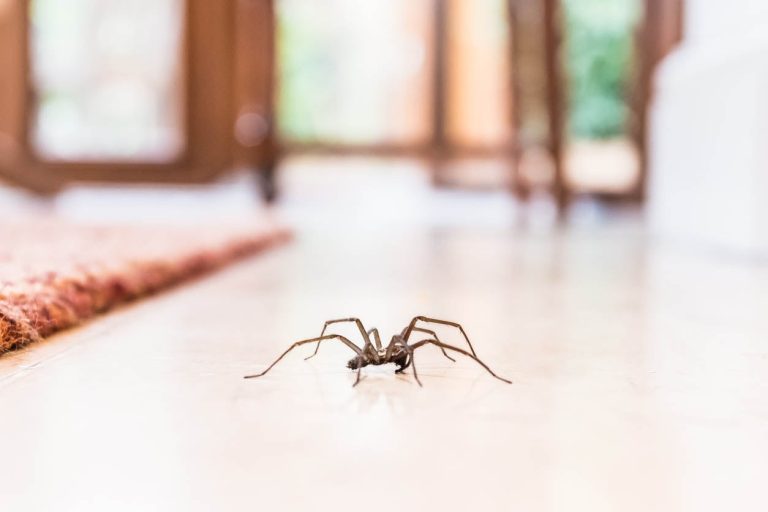What Smell Do Ants Avoid?
Ants are fascinating creatures that have been studied for centuries by scientists and laymen alike. While it is well-known that ants can sense certain smells, it is less well-known that certain smells can actually drive them away. In particular, ants are known to avoid certain smells such as citrus, vinegar, mint, and garlic. By understanding the smells that ants avoid, you can help to protect yourself and your home from unwanted ant infestations.

Types of Smells Ants Avoid
Ants are one of the most common pests that invade our homes, businesses, and gardens. They can be found in various places inside and outside our homes, and are often difficult to control. However, there are certain smells that ants avoid and can help us in our efforts to keep them away from our homes.
One of the smells ants avoid is citrus. Citrus fruits such as oranges, lemons, and grapefruits produce a strong scent that ants don’t like. This scent is also found in essential oils derived from these fruits, such as orange, lemon, and grapefruit oils. Spraying these oils around the perimeter of your home or in areas where you notice ant activity can help keep them away.
Another smell ants dislike is vinegar. Vinegar is a strong acidic smell that ants are not fond of. Mixing vinegar and water in a spray bottle and spraying it around the perimeter of your home or in areas where you notice ant activity can help keep them away.
A third smell ants avoid is peppermint. The strong scent of peppermint is a natural ant repellent. Mixing peppermint essential oil and water in a spray bottle and spraying it around the perimeter of your home or in areas where you notice ant activity can help keep them away.
Finally, ants also avoid the scent of garlic. Much like peppermint, garlic has a strong smell that ants don’t like. Mixing garlic and water in a spray bottle and spraying it around the perimeter of your home or in areas where you notice ant activity can help keep them away.
These are some of the smells ants avoid that can help us in our efforts to keep them away from our homes. While these methods may not completely eliminate all ants, they can help reduce their presence and keep them away.
Ants’ Sensory Perception and Avoidance Mechanisms
Ants have an extraordinary sense of smell that helps them identify food sources, locate their colony, and evade danger. This sense of smell also helps them to identify chemicals that they find unpleasant or dangerous. So, what smell do ants avoid? In this article, we’ll discuss the science behind ants’ sensory perception and avoidance mechanisms.
Ants’ sensory perception is driven by an array of chemoreceptors and mechanoreceptors located in their antennae and other body parts. With these receptors, ants can detect and identify smells from chemicals in the environment. Ants are also able to detect and identify pheromones produced by other ants, as well as chemical signals from potential predators.
When faced with an unpleasant or dangerous smell, ants will respond with avoidance mechanisms. This can include changing their direction of travel, avoiding certain areas, or retreating back to their colony. They may also secrete a defensive odor, alerting other ants of the danger. In some cases, the odor may repel or even kill predators or other pests.
So, what smell do ants avoid? While it is difficult to pinpoint specific odors, ants generally avoid pungent, spicy, and bitter smells. In addition, ants are known to avoid certain essential oils, including citronella, eucalyptus, peppermint, and tea tree oil.
In conclusion, ants have an amazing sense of smell that helps them to identify food sources, locate their colony, and evade danger. They will respond with avoidance mechanisms when faced with an unpleasant or dangerous smell, which often includes pungent, spicy, and bitter odors. In some cases, certain essential oils may also be enough to repel ants.
How Ants’ Repellent Responses Vary with Species
Ants are an incredibly diverse species, with over 12,000 known species around the world. Not surprisingly, they have varied responses to different smells. While some species tend to be repelled by certain smells, others may be attracted or indifferent. It is important to understand the different repellent responses of different ant species to better protect our homes and gardens from ant invasions.
Ants are known to be repelled by the smell of peppermint, cinnamon, and citrus. However, the response of different ant species to these scents can vary significantly. For example, fire ants are repelled by the smell of cinnamon, while Argentine ants are attracted to it. So, when using natural repellents, it is important to understand which species of ant is present and which smell is most effective at repelling them.
Ants also respond differently to artificial repellents. Pyrethroids, which are synthetic compounds derived from natural pyrethrins, are widely used to keep ants out of homes and gardens. While some species may be repelled by pyrethroids, others may be unaffected or even attracted to them. It is, therefore, important to understand the response of a particular species of ant before using a pyrethroid-based repellent.
In summary, ants have varied responses to different smells and artificial repellents. Knowing the species of ant and which smells and repellents are effective at repelling them is key to protecting our homes and gardens from ant invasions.
Common Smells that Repel Ants
When it comes to ants, most of us would rather not have them in our homes. Fortunately, there are certain smells that ants will avoid. Knowing these smells can help you keep ants away or drive them out of your home.
Certain essential oils, such as peppermint, lavender, tea tree, and cinnamon oils, are known to be ant repellents. The strong smell of these oils is too overwhelming for ants, and they will stay away. You can also use citrus oils, such as lemon and orange, to create a natural barrier that will keep ants away.
Coffee grounds and bay leaves are also effective ant repellents. The smell of caffeine in the coffee grounds, as well as the strong aroma of the bay leaves, will keep ants away. Sprinkling these items around the perimeter of your home is an effective way to repel ants.
Other smells that ants do not like include vinegar, garlic, and cayenne pepper. Vinegar has a strong smell that ants do not like. Garlic also has a powerful scent that ants will avoid. Finally, the spicy smell of cayenne pepper is too overwhelming for ants and will keep them away.
By using these smells to create a natural ant repellent, you can keep ants away from your home. The strong smell of these items will be too overwhelming for the ants, and they will leave the area. Not only is this an effective way to repel ants, but it is also a natural, safe, and affordable solution.
Methods to Deter Ants through Smells
Ants are a nuisance that can invade any home, but they don’t have to be permanent residents. Although there is no single smell that ants will always avoid, there are certain smells that they tend to stay away from. To use the power of smell to your advantage, there are a few methods you can try.
One way to deter ants is by using essential oils like peppermint, cinnamon, lavender, citrus, and tea tree. These oils have strong scents that ants don’t like and it can keep them from entering your home. You can also use cayenne pepper, garlic, or onion powder to create a scent barrier around your home.
Another method is to use scented candles or incense sticks. The strong smells of certain candles and incense can be enough to keep ants away. You can also make your own ant repellent by combining lemon juice, white vinegar, and water in a spray bottle. Spray this mixture around the perimeter of your home and it should keep ants away.
Finally, you can use soap and water to repel ants. Soap and water can break the surface tension of ants, making it harder for them to climb up walls and other surfaces. To use this method, mix equal parts of liquid soap and water in a spray bottle and spray the area where you suspect ants are coming from.
Using smells to keep ants away is an effective and simple method. If you are looking for a natural and safe way to deter ants, these methods are worth trying.
Additional Tips for Keeping Ants Away
Ants are a common household nuisance, but they can be kept at bay with some simple strategies. To effectively keep ants away, it is important to understand what smells they are trying to avoid. While some ant species are attracted to sweet smells, others are trying to stay away from strong, pungent odors. Knowing what smells ants are avoiding can help you create a barrier that will keep them from entering your home.
In addition to avoiding certain smells, there are several other effective strategies for keeping ants away. These include keeping food containers sealed, creating a physical barrier with ant deterrents, and maintaining a clean and clutter-free environment. Regularly cleaning up food crumbs and spills can also help to reduce ant activity. It is also important to inspect the exterior of your home to look for any entry points that ants could be used to gain access. Caulking or sealing any cracks or crevices can help to further reduce ant activity.
By understanding what smells ants are avoiding and using a combination of strategies to keep them away, you can effectively keep ants from entering your home. Taking the time to implement these tips can save you a lot of time and stress in the long run.
Conclusion
Ants are known to be sensitive to certain smells and can be repelled by them. The most common smells that ants avoid include strong fragrances such as mint, citrus, tansy, lavender, and cinnamon. In addition to these smells, ants can also be repelled by pungent smells like vinegar, garlic, and alcohol. All of these smells can be used to create a natural barrier against ants and can help to keep them out of your home.







